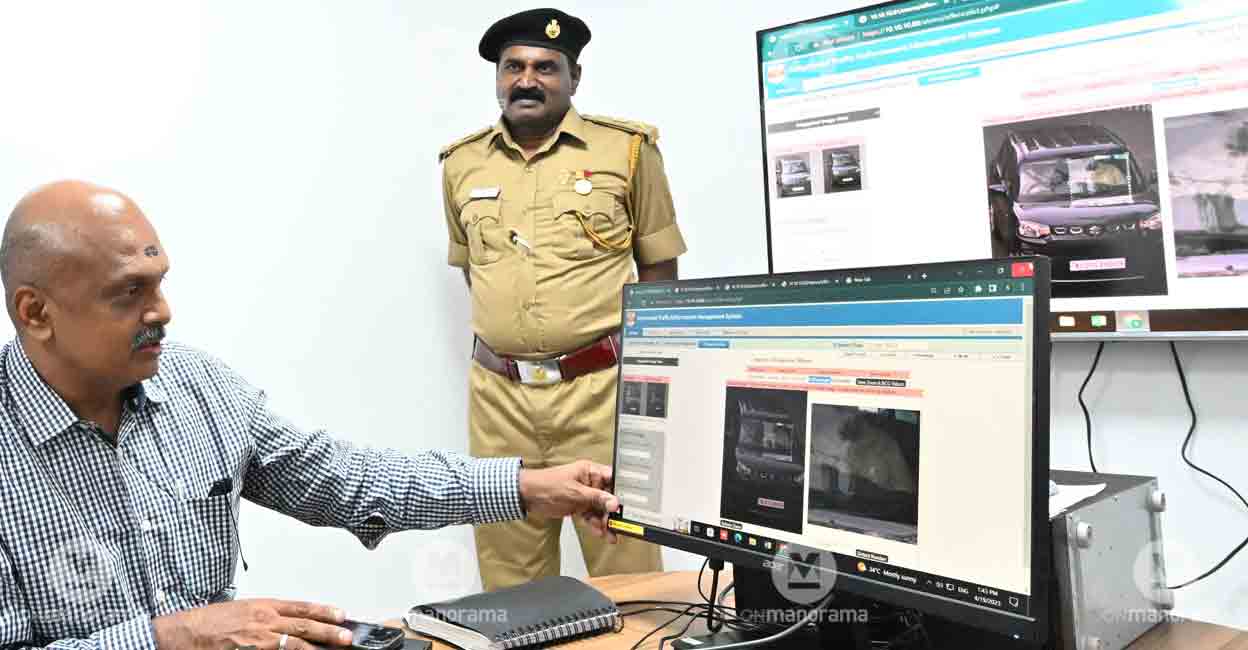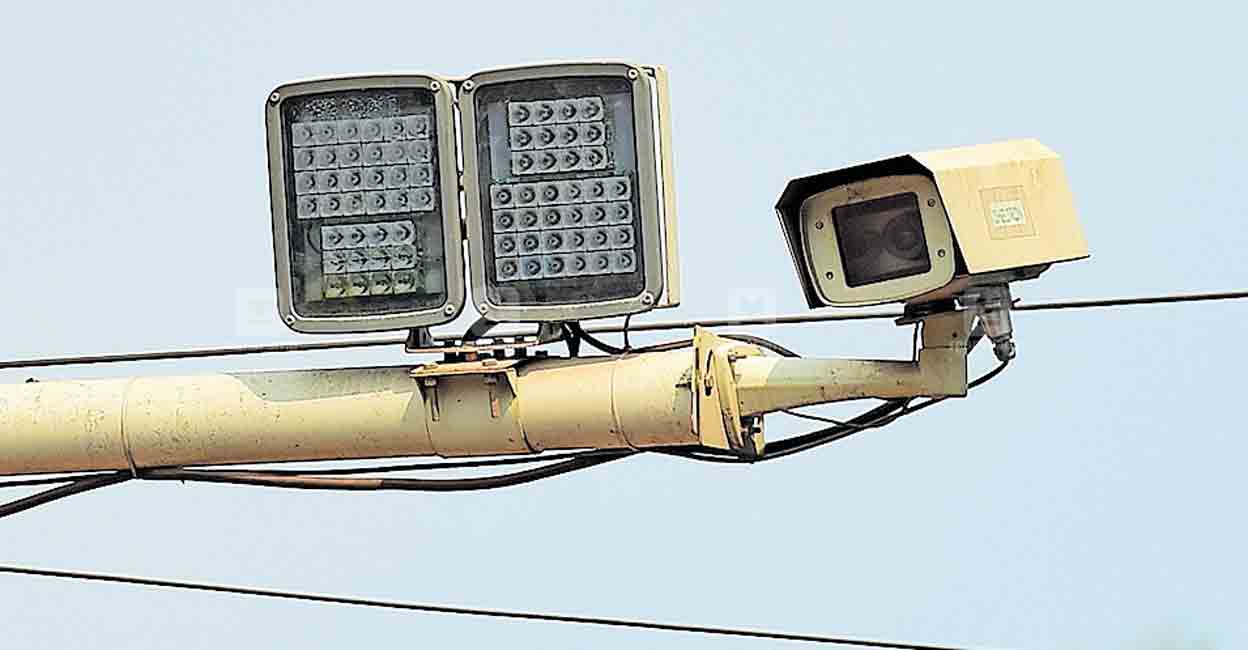How AI surveillance enabled Karnataka govt control Bengaluru traffic

Mail This Article
The 726 AI cameras installed in Kerala recently to identify traffic violations have had their fair share of controversies.
At the centre of the debate lies the question: Can AI surveillance and project 'Safe Kerala' bring about the much-needed discipline to Kerala's roads?
Bengaluru, a city which is known for its notorious traffic, also experimented along these lines almost a year ago.
Cameras were installed in 50 crucial junctions to detect eight specific violations: not wearing seatbelts, speeding, triple riding, one-way riding violations, use of mobile phones, signal jumping, stopping/crossing stop lines, and not wearing helmets.
ADGP M A Saleem, Special Traffic Police Commissioner in Bengaluru city, told Onmanorama that traffic violations, like the jumping of signals, have come down greatly. The IPS officer, who also holds a doctorate in traffic control, has played a key role in decongesting Bengaluru since his appointment last year.
“The installation of cameras in November and December has greatly helped in enabling transparency of booking cases. We have booked over 35 lakh cases of visible violations since last November. Earlier, we had to flag vehicles manually or zoom in on the surveillance cameras to detect violations. This tedious process has become seamless with the implementation of the Intelligent Traffic Management System,” Saleem said.
“Now, we book almost 20,000 cases per day. The system immediately registers violations and sends a notification to the vehicle user,” he added.
According to Saleem, some cases like the jumping of traffic signals have come down due to the system. In February, 15 lakh cases registered under this offence were disposed of. We collected Rs 138 crore from 11 lakh offenders during the month," he added.
Kerala's Transport Commissioner ADGP S Sreejith said that traffic violations have come down in the state since the rollout of AI surveillance. “A comparison of the traffic violations on April 17 and April 20 shows a drop of almost 50 per cent,” ADGP S Sreejith said.
“If the trend continues, we could bring down fatal road accidents by 30 to 40%. Every year, 4,000 deaths occur on our roads. Even a slight reduction of 10% implies that 400 people do not meet a tragic end,” he added.

Better deployment of human resources
The seamless integration of the AI cameras and challan system has greatly helped improve transparency and use manpower more effectively in Bengaluru.
In 2004, Bengaluru implemented the automated challan system. Under the system, cops would zoom in through surveillance cameras and capture violations through phones to flag offences. Citizens could also alert offences like illegal parking through the public eye portal.
“But the implementation of Intelligent Traffic Management System (ITMS) has helped in reducing the excessive reliance on these methods and improve transparency. Now, 97% offences in Bengaluru are registered in a contactless manner. Police personnel are used only for traffic regulation and management,” Saleem said.
ADGP S Sreejith agrees. “The role of the Motor Vehicles Department is primarily revenue collection and not enforcement. The new AI-integrated system makes the job easier and helps us deploy our resources better,” he said.
“An officer can detect only 200 offences a day. The AI cameras can detect 20 times more,” Sreejith added.
“The challan is generated automatically. But manpower is used when there is no response to the challan. Manual demand notices need to be generated in such cases. For this just 100-150 cops are needed,” he said.

'No violation of privacy'
One of the key points raised by privacy advocates is that AI cameras violate an individual's privacy. But the top officials were quick to dismiss the allegations.
“Why would it be a violation of privacy if the camera captures the visuals on a public road?” said Saleem.
“The vehicle owners are served notice with photographic evidence of the offence. They can also view the video recording through a link provided. The owners are expected to send details of the driver and pay the fin online after receiving the notice,” he elaborated.
Sreejith said the AI camera captures an image or video only if an offence is committed. “The camera captures only images from the front seat and retains the footage only if there is a traffic violation,” he said dismissing the invasion-of-privacy argument.
Advise for Kerala
“One of the key limitations we faced after the implementation of the AI surveillance is the low rate of compliance," Saleem said. "People do not respond to notices. We had to reduce the fine amount by 50% in February to improve compliance. Fifty lakh pending cases were disposed of as a result,” he said.
To improve the compliance rate, the Bengaluru police have also recommended a few amendments like non-issuance of transport certification and halting of licence renewal in case of pending dues.


